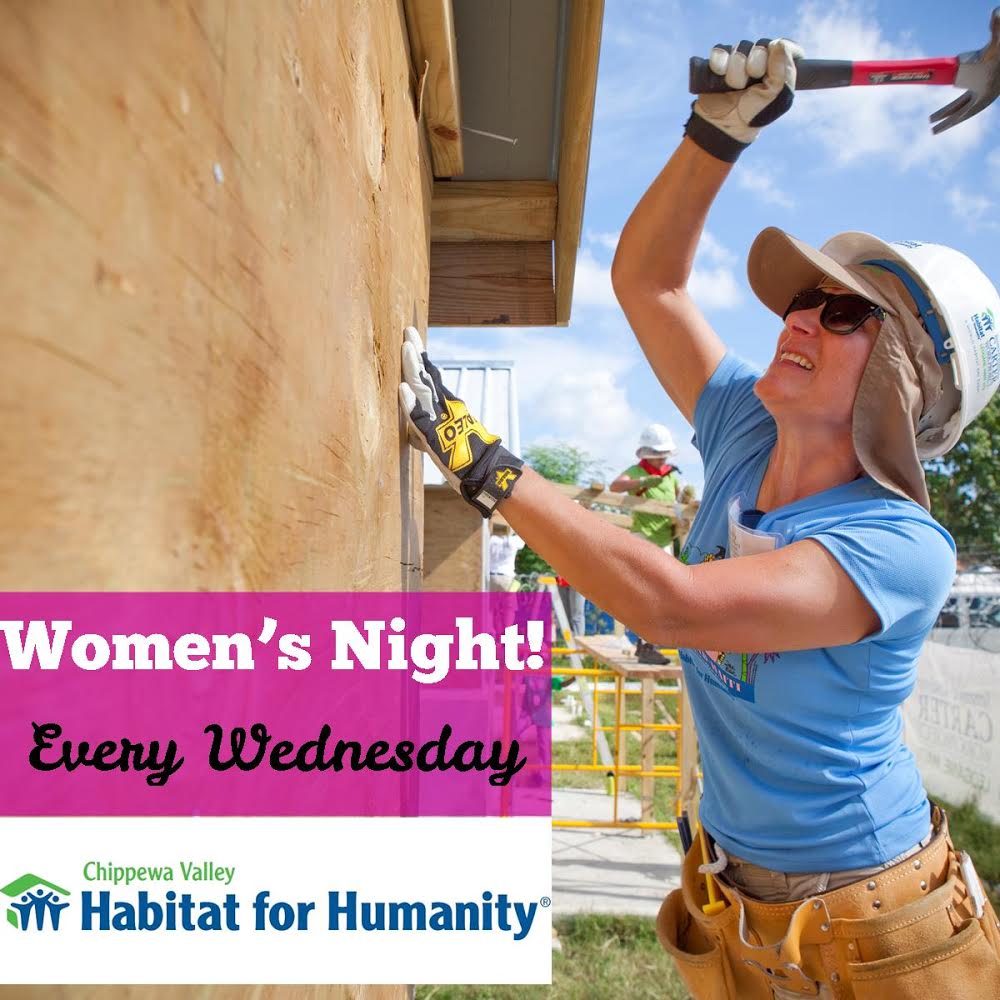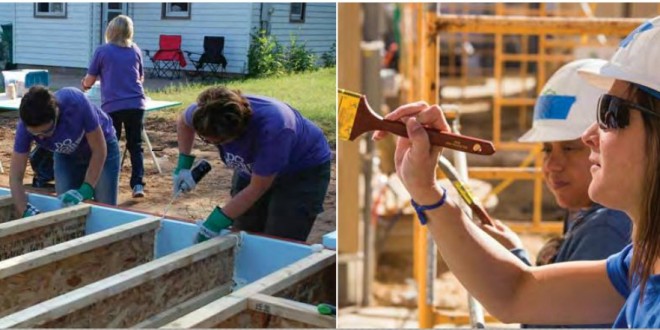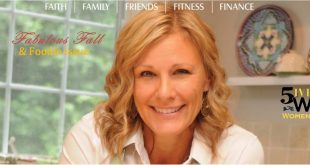Having a safe, livable, and warm home is something that most people take for granted. When was the last time you worried about being evicted or having enough money to pay next month’s rent? Unfortunately, there are families throughout the nation and in the Chippewa Valley that worry about these things each day. However, the local Habitat for Humanity organization strives to help families achieve their dream of home ownership. Through volunteerism, hard work, and community support, the organization makes a significant impact—one home at a time.
Josh Rizzo serves as Chippewa Valley Habitat for Humanity’s development coordinator, and he is happy to explain how Habitat for Humanity works in our community.
Habitat for Humanity builds safe, decent, and affordable homes for hard-working families in need … My role is to gather support for our organization through volunteer and financial contributions. I build community relationships and align with groups and individuals who want to help make a difference building Habitat homes.
Currently, Rizzo is working diligently to gather volunteers to build the Chippewa Valley’s 40th Habitat home.
We have over 230 volunteers signed up to build with us, including 13 corporate groups from JAMF, eBay Enterprise, Thrivent Financial, and more.
The need for these homes in our area is tremendous.
The City of Eau Claire has a waiting list of people applying for subsidized affordable housing and there are generally 400-600 families on that list at any time … Many families work hard with two, three, or even four jobs, but can’t afford an adequate apartment and don’t qualify for a conventional loan. We bridge that gap so that families can responsibly make that leap to homeownership.
Not only does the family gain a home, they become tax-paying and community-contributing families. As part of the project, the family selected for the home must actively participate in the building process. Rizzo explains,
There is a very popular misconception that Habitat gives away houses for free. But, families actually make very big contributions to the project.
There are three criteria for receiving a Habitat home: First, the family must demonstrate a need for housing such as inadequate space, unhealthy conditions, or an inability to qualify for a conventional mortgage. Next, the family must be willing to partner with Habitat by putting in 250-400 labor hours (depending on family size). Finally, families must be able to pay for the house.
A Habitat house is not free. We sell homes at a reduced price with an interest-free mortgage. The many volunteers who come out to build the house with free labor make it possible to sell the house at this reduced rate.
 This fall, Chippewa Valley Habitat for Humanity is trying a unique program to encourage volunteers.
This fall, Chippewa Valley Habitat for Humanity is trying a unique program to encourage volunteers.
Women’s Builds are growing trends for Habitat affiliates nationwide. In many programs, there are entire homes that were built exclusively by women. Women like the camaraderie and empowerment of building homes, so we thought we would see if there was an interest in the Chippewa Valley.
Thus far, the group consistently has five to 10 women coming out each week to build and socialize.
The 40th Habitat for Humanity home in the Chippewa Valley is slated for a family of eight: a mom, a dad, and six children.
They live in a small apartment with only a few bedrooms right now. They have been very active while working extremely hard on the house. We have been very impressed with their work ethic and dedication to their home.
Typically, the homes are built on a 20-week schedule. However, plans are ahead of schedule this year because of the extra volunteer hours from the Women’s Build.
The construction crew has been impressed with how much the women accomplish each week, so we have adapted the building schedule a bit and expect to be done in less than 20 weeks for this particular home.
While the family that receives a home is changed forever, the volunteers gain valuable experiences, too.
Volunteers come out because they believe in the transformative power of home ownership for struggling families. There is a great sense of pride in helping to build a new house and looking to your right and seeing the future homeowner swinging a hammer alongside of you.
And, Rizzo hopes that the upcoming Women’s Builds will further that volunteerism effort throughout the community,
Having a safe place to call home is something that touches everyone’s heart.
 Chippewa Valley 5ive for Women The Chippewa Valley’s Premier Magazine for Women!
Chippewa Valley 5ive for Women The Chippewa Valley’s Premier Magazine for Women!











